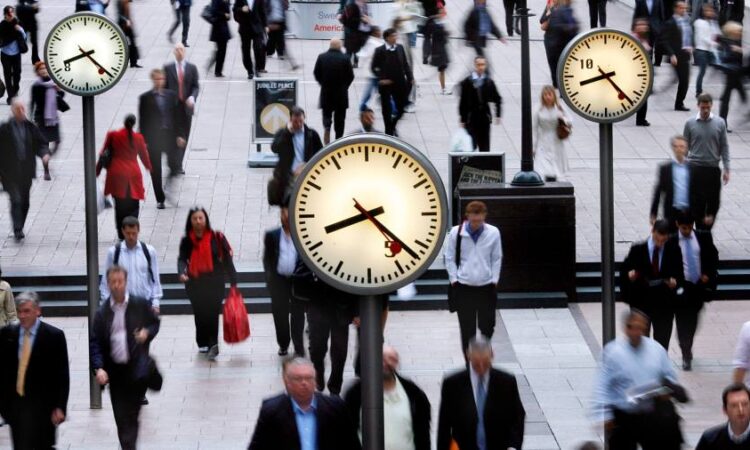
Labour shortages that fuel inflation and squeeze funding for public services may be “the shape of things to come” for the UK economy, the House of Lords economic affairs committee has concluded.
Early retirement by people in their 50s and 60s has been the main reason behind an increase of more than half a million in the number of working-age adults who are neither in employment nor job-seeking, according to a report published by the committee on Tuesday.
This post-pandemic rise in economic inactivity has been unique to the UK. In almost all other developed economies the employment rate has returned towards its pre-pandemic trend — or even exceeded it — as the effects of Covid lockdowns faded.
A smaller workforce represents a serious economic challenge, because it makes it hard for employers to fill jobs; adds to wage pressures that could make high inflation persist; holds back growth, and reduces the tax revenues available to fund public services.
Economists have been puzzling over the reasons for the UK’s shrinking workforce, with some pointing to a rise in long-term sickness and disability among the working-age population, while others blame Brexit for choking off the flow of EU workers who used to fill many lower paid roles.
But the committee’s investigation found that while these factors had contributed, the biggest driver of the exodus from the workforce had been early retirement by people who could afford it, and neither wanted nor expected to return to work.
Population ageing was a bigger factor than most people realised, the committee said — a trend that was previous masked by women staying in work for longer, but will now continue to weigh on labour supply.
Lord George Bridges, the committee’s chair, said this meant policymakers could not count on labour market dropouts returning to work, or on the workforce growing at its pre-pandemic rate in future.
“There is a nagging concern that this is the shape of things to come,” he said. “We cannot assume a lot of these people might return.”
However, Lord Bridges also acknowledged that some people who had left their jobs since the start of the pandemic might need to seek work again due to the cost of living crisis.
UK inflation stood at 10.7 per cent in November, after easing slightly from a 41-year-high in October.
There are early signs of financial pressures forcing people to return to the workplace, with the latest official data showing that the number of inactive people over 50 had dropped in the three months to October.
An Office for National Statistics survey exploring workers’ motivation, published on Monday, showed that 72 per cent of adults aged 50 to 59 who had left paid work since the pandemic were considering returning in August — up from 58 per cent when the question was asked in February.
However, the ONS survey also confirmed the committee’s finding that most people aged 50-65 who had left paid work had done so out of choice. Fewer than one in 10 said they had left for health reasons.
Retirement, lifestyle choices and the pandemic were the most common reasons given, with significant numbers also citing stress, caring responsibilities or a sense that they were not valued or supported in their jobs.






